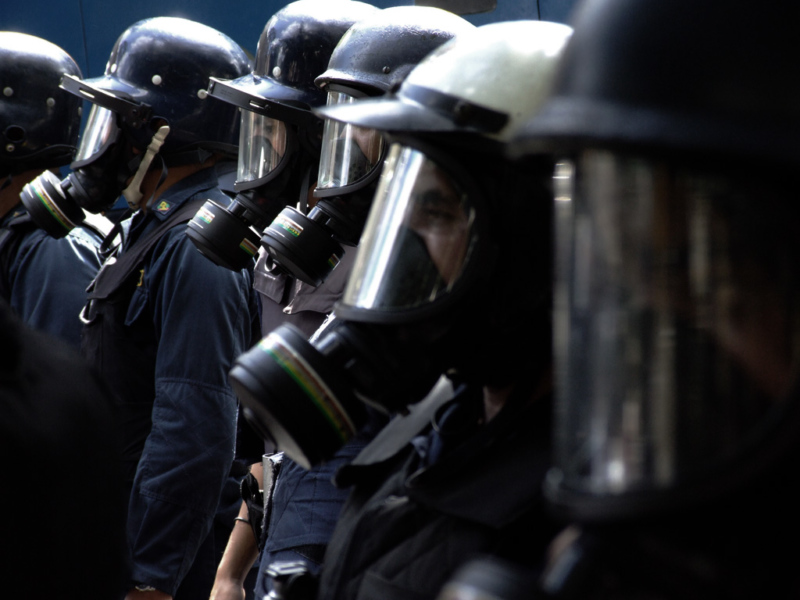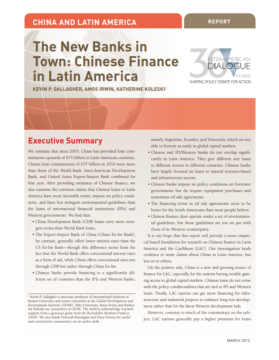Hugo Stay Home
Hugo Chavez, the Venezuelan president, has clearly been enticed by the Libyan drama, where his longtime friend and ally, Muammar al-Qaddafi, is under siege from rebel forces.
This post is also available in: Español
On February 23, in Cucuta, on the border between Colombia and Venezuela, Juan Guaidó and his followers sought to engineer the collapse of the Maduro dictatorship in Venezuela. Guaidó, the president of the democratically elected National Assembly and recognized as interim president by nearly 60 governments worldwide, believed that by forcing the delivery of humanitarian aid into Venezuela, the armed forces would leave Maduro and join his effort for a democratic transition. The result: some military defections, but not nearly enough to bring down the regime. And the desperately needed aid didn’t get through.
On April 30, the “Operation Liberty” march led by Guaidó had unmistakable echoes of Cucuta (as well as first massive street mobilization in January). The idea was the same: encourage the highest levels of the armed forces to switch their allegiance from Maduro to Guaidó – this time by defiantly going to a military base accompanied by opposition leader and Guaidó's mentor, Leopoldo López, who had been under house arrest.
The result was additional defections from the National Guard and, most significantly, the head of the domestic intelligence agency. Maduro even deemed it necessary to call out the paramilitary colectivos to protect the regime. But, once again, most senior officers closed ranks and Maduro was able to maintain control. It was another example of Maduro’s resilience and another let down for the opposition.
What happens next? Who will prevail - Guaidó or Maduro? Both are somewhat battered after recent developments, still standing, but weakened. Maduro was able to quash tuesday’s uprising and remains in effective control, but the government’s fragility has been revealed. And while Guaidó miscalculated and might have come closer to achieving his objective with better preparation, there is no sign he is ready to give up. He is determined to sustain the pressure and, so far, has been able to keep the opposition united.
It is possible that neither Guaidó nor Maduro will prevail. The key question is how the armed forces interpret what is happening and what they are prepared to do in response. Venezuela may be slowly moving into a scenario in which the military moves to take full control, without Maduro, but not necessarily in accordance with Guaidó’s (and the constitution’s) terms and timetable for a transition. Such a scenario would bring enormous uncertainty, whether or not Guaidó or others from the opposition are brought in. Less likely, the military could fracture and set off a more violent, chaotic situation, potentially with wider, regional implications. Given the opacity of the armed forces, it is very difficult to predict which course they would pursue.
Under such a scenario, the dynamics within the military will be decisive. Yet the regional and international community can and should play a supportive role. The armed forces should be pressed to move peacefully towards a transitional government, incorporating leading opposition figures.
Negotiations to hold free and fair elections and restore democratic rule would take place within the military-led government. Such negotiations, especially about amnesties, will be controversial. And they will require skill and time to work out.
Hugo Chavez, the Venezuelan president, has clearly been enticed by the Libyan drama, where his longtime friend and ally, Muammar al-Qaddafi, is under siege from rebel forces.
Estimates of the volume, composition, and characteristics of Chinese lending to the region since 2005.
Will Brazilian President Dilma Rousseff’s visit to Washington next month help improve bilateral relations?
 Rodrigo Suarez / CC BY-NC-ND 2.0
Rodrigo Suarez / CC BY-NC-ND 2.0
